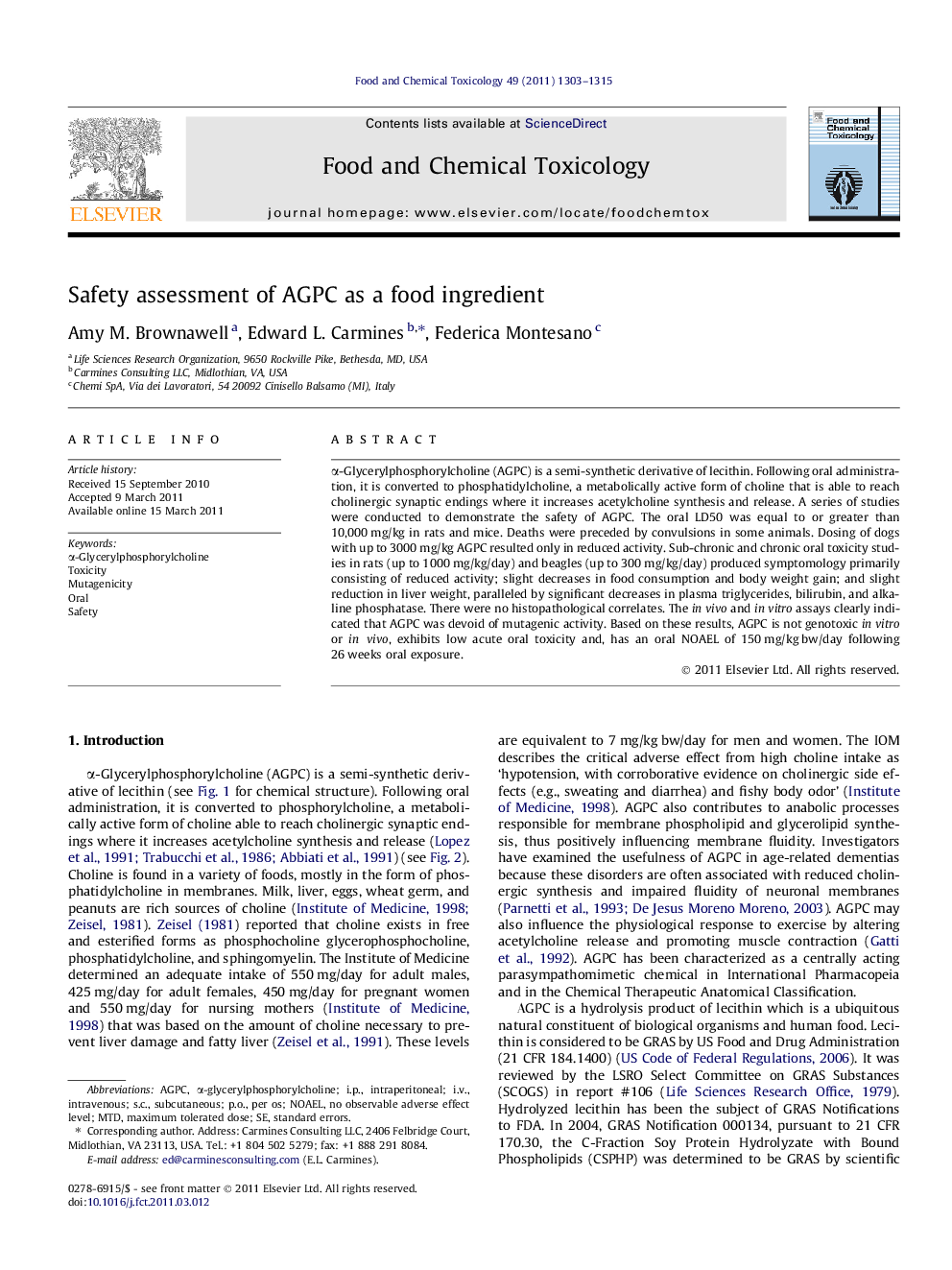| Article ID | Journal | Published Year | Pages | File Type |
|---|---|---|---|---|
| 5853434 | Food and Chemical Toxicology | 2011 | 13 Pages |
α-Glycerylphosphorylcholine (AGPC) is a semi-synthetic derivative of lecithin. Following oral administration, it is converted to phosphatidylcholine, a metabolically active form of choline that is able to reach cholinergic synaptic endings where it increases acetylcholine synthesis and release. A series of studies were conducted to demonstrate the safety of AGPC. The oral LD50 was equal to or greater than 10,000 mg/kg in rats and mice. Deaths were preceded by convulsions in some animals. Dosing of dogs with up to 3000 mg/kg AGPC resulted only in reduced activity. Sub-chronic and chronic oral toxicity studies in rats (up to 1000 mg/kg/day) and beagles (up to 300 mg/kg/day) produced symptomology primarily consisting of reduced activity; slight decreases in food consumption and body weight gain; and slight reduction in liver weight, paralleled by significant decreases in plasma triglycerides, bilirubin, and alkaline phosphatase. There were no histopathological correlates. The in vivo and in vitro assays clearly indicated that AGPC was devoid of mutagenic activity. Based on these results, AGPC is not genotoxic in vitro or in vivo, exhibits low acute oral toxicity and, has an oral NOAEL of 150 mg/kg bw/day following 26 weeks oral exposure.
